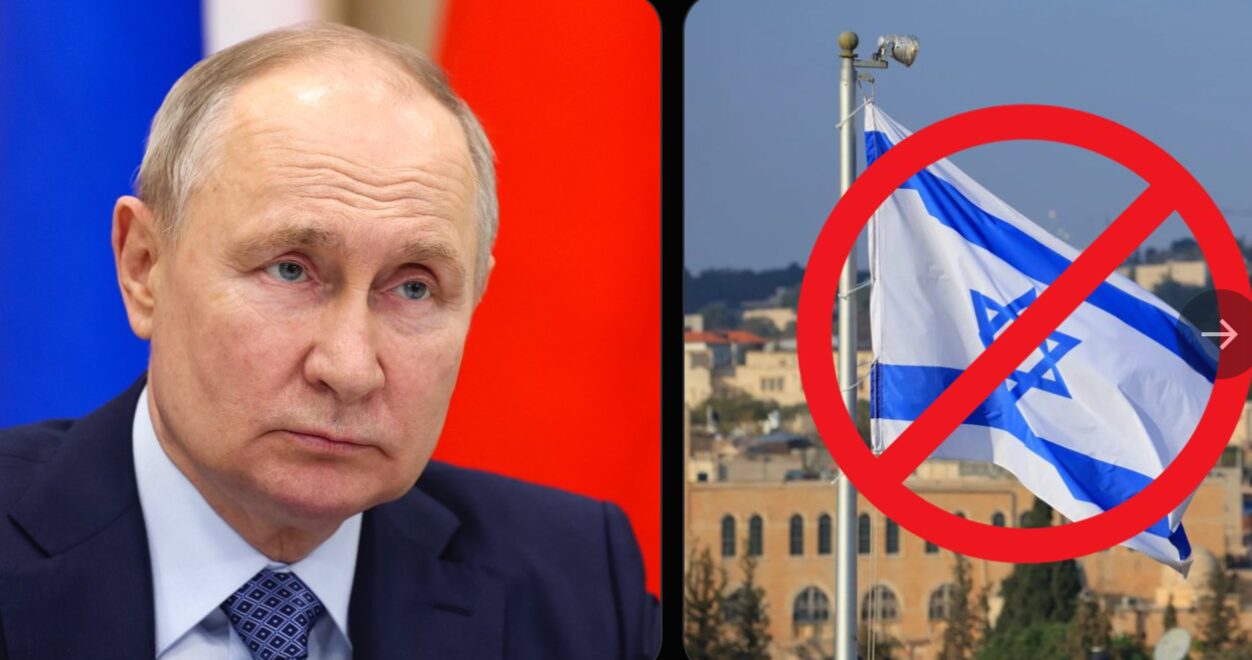Syria’s Shift in Policy: Governor Maher Marwan Expresses Desire to Normalize Relations with Israel
In a surprising development in the Middle East, Syria’s new government has signaled a shift in its long-standing position toward Israel. Maher Marwan, the governor of Damascus, recently stated, “Our problem is not with Israel, we don’t want to meddle in anything that will threaten Israel’s security.” This statement marks a significant departure from decades of hostile relations between Syria and Israel, both of which have been marked by conflict, territorial disputes, and entrenched political divisions.
Syria’s decision to pursue normalization with Israel is not only a bold move in the context of Syrian-Israeli relations but also reflects broader shifts in Middle Eastern geopolitics. As the region evolves, there are growing indications that Syria may be looking to realign itself with its neighbors and reduce tensions in favor of stability and cooperation.
In this article, we will explore the implications of Governor Maher Marwan’s comments, the potential for normalization between Syria and Israel, and the broader geopolitical context that is influencing this shift in policy.
Maher Marwan’s Statement: A Shift in Tone
Governor Maher Marwan’s remarks are a significant departure from the rhetoric that has dominated Syrian-Israeli relations for decades. Traditionally, Syria has been a vocal critic of Israel, and the two countries have fought multiple wars, including the 1967 Six-Day War and the 1973 Yom Kippur War. Additionally, Syria has long supported various militant groups and movements in the region that have opposed Israel’s existence, most notably Hezbollah and Palestinian factions.
However, Marwan’s statement reflects a notable change in Syria’s political stance. By explicitly stating that Syria does not view Israel as an enemy and does not wish to threaten Israel’s security, he opens the door for a potential shift toward diplomacy and cooperation between the two countries.
This change in tone could be seen as part of a broader strategic pivot by Syria, which has faced years of internal conflict, economic hardship, and international isolation. As Syria works to rebuild after the devastating civil war, there is a clear desire among some factions within the government to improve relations with Israel and other neighboring countries in order to stabilize the region and secure Syria’s future.
The Geopolitical Context: Why Now?
Several factors are likely influencing Syria’s decision to explore normalization with Israel, including the ongoing civil war’s aftermath, shifts in regional alliances, and the changing dynamics of Middle Eastern diplomacy.
1. Syria’s Post-Civil War Reality
The civil war in Syria, which began in 2011, has left the country devastated. Although the government of President Bashar al-Assad has regained control over much of the territory, Syria faces a difficult path to recovery. The country’s infrastructure is in ruins, and its economy is struggling, with millions of Syrians displaced both internally and abroad. Normalizing relations with Israel could provide Syria with access to much-needed economic assistance, as well as open the door for greater investment and trade opportunities.
Furthermore, improving relations with Israel could help Syria reestablish diplomatic ties with the West and the Arab world, which have been strained since the outbreak of the civil war. As Syria seeks to regain its place in the international community, building ties with Israel could be seen as a pragmatic move to secure political and economic support.
2. Shifting Alliances in the Middle East
The broader geopolitical landscape in the Middle East has also undergone significant changes in recent years, which may influence Syria’s decision to move toward normalizing relations with Israel. The Abraham Accords, signed in 2020, marked a historic shift in relations between Israel and several Arab countries, including the United Arab Emirates, Bahrain, Sudan, and Morocco. These agreements, which led to the normalization of diplomatic and economic ties, have reshaped the regional dynamics and sent a clear signal that Israel is not entirely isolated in the Arab world.
For Syria, which has long been aligned with Iran and Hezbollah—both of which have been hostile to Israel—the changing attitudes of Arab nations toward Israel could be seen as a signal that peace and cooperation are becoming increasingly important in the region. As Syria seeks to move beyond the legacy of the civil war, aligning itself with the broader trend toward diplomacy and normalization in the Middle East could offer Syria new opportunities for stability and growth.
3. The Role of Iran and Hezbollah
While Syria’s relationship with Iran has been a cornerstone of its foreign policy for years, particularly during the civil war, Iran’s influence in the region is increasingly being scrutinized by Israel and other Middle Eastern countries. Israel has expressed concerns about Iran’s military presence in Syria, which it sees as a direct threat to its security.
Syria’s desire to normalize relations with Israel may be influenced by a desire to reduce its reliance on Iran and Hezbollah, both of which have complicated Syria’s relations with its Arab neighbors and the West. By seeking peace with Israel, Syria could be attempting to send a message to the international community that it is willing to de-escalate tensions and prioritize its own stability over regional alliances that have fueled conflict.
4. Pressure from the United States and Europe
The international community, particularly the United States and European Union, has expressed concern over Syria’s ongoing conflict and its relations with Iran and other militant groups. While the U.S. has long been a staunch ally of Israel, it has also signaled a willingness to engage with Syria if the country takes steps toward stability and peace.
In this context, Syria’s attempt to normalize relations with Israel could be seen as a calculated move to improve its standing with the West. The U.S. and European powers have often conditioned their diplomatic and economic support for Syria on progress toward peace and political reforms. By shifting toward a more peaceful and cooperative foreign policy, Syria may be seeking to reopen channels of dialogue with the West, thereby securing international aid and support.
The Potential for Normalization: What Would It Look Like?
The prospect of normalization between Syria and Israel remains uncertain, but there are several ways this process could unfold. While the road to full diplomatic relations would be complex and fraught with challenges, the following factors could play a role in shaping the future of Syrian-Israeli ties:
1. Territorial Disputes
One of the major obstacles to peace between Syria and Israel is the ongoing dispute over the Golan Heights, a strategically significant plateau that Israel captured from Syria during the 1967 Six-Day War. While Syria has long demanded the return of the Golan Heights, Israel has maintained that it is essential for its security.
Any potential peace agreement between Syria and Israel would likely require a negotiated settlement on this issue, which could involve compromises from both sides. The status of the Golan Heights remains a contentious issue, but Syria’s willingness to engage in discussions could signal a shift in its position.
2. Security Guarantees
Israel would likely seek assurances from Syria that its security would not be threatened by Syrian-backed groups or Iranian military presence in the region. This could involve Syria taking steps to limit the influence of Iran and Hezbollah within its borders, which would be a critical factor in any peace talks.
3. Economic Cooperation
As part of a normalization process, Syria and Israel could explore opportunities for economic cooperation, particularly in areas like trade, energy, and infrastructure development. Syria’s economic recovery could be facilitated by partnerships with Israel and its regional allies, potentially bringing stability and prosperity to both nations.
Conclusion: A New Era of Diplomacy?
Maher Marwan’s statement that Syria “doesn’t want to meddle in anything that will threaten Israel’s security” offers a glimpse into the possibility of a new phase in Syrian-Israeli relations. While much remains uncertain, it is clear that Syria is signaling a willingness to reconsider its long-standing adversarial stance toward Israel. The broader geopolitical context in the Middle East, including the changing dynamics of regional alliances and the aftermath of Syria’s civil war, suggests that the time may be right for a new approach to diplomacy in the region.
Normalization between Syria and Israel would not only reshape the bilateral relationship but could also have far-reaching consequences for regional stability, security, and economic cooperation. While the challenges are significant, the potential rewards of peace could offer a new era of diplomacy and cooperation in a region that has long been defined by conflict. The world will be watching closely to see if Syria’s new government will continue down the path of peace and normalization with Israel, paving the way for a more stable Middle East.

















Post Comment